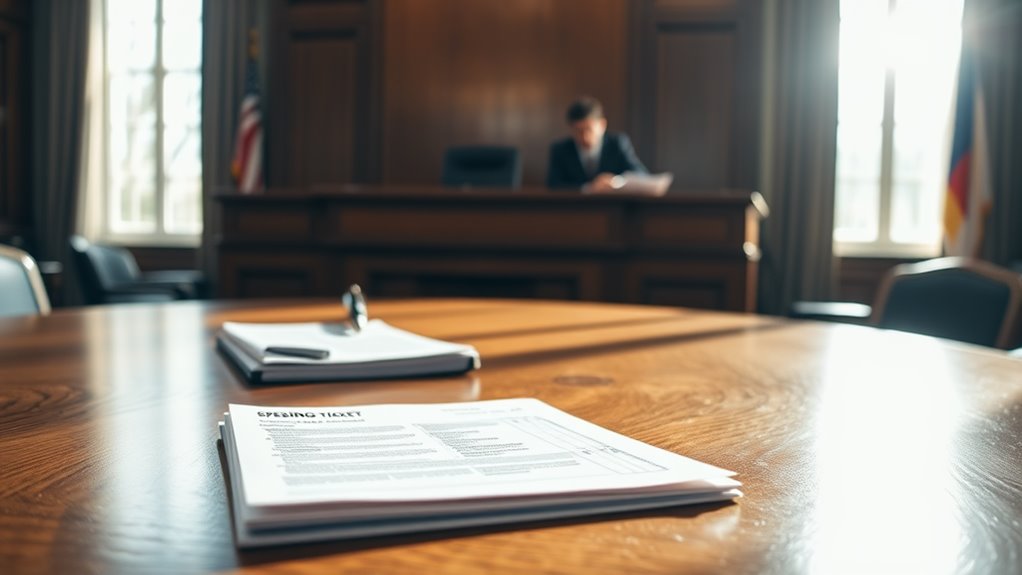How to Dispute a Speeding Ticket Effectively
If you've received a speeding ticket, it's essential to approach the situation strategically. Start by examining the ticket for any inaccuracies and gathering evidence to support your case. Understanding the relevant laws is just as important as preparing your testimony. Each step you take can markedly impact the outcome. But what specific evidence will strengthen your defense, and how can you present it effectively in court? Let's explore the key strategies that can make a difference.
If you've received a speeding ticket, you might feel overwhelmed, but disputing it can be a reasonable option. Start by reviewing the ticket details carefully. Check that all information, such as your name, the location, date, time of the offense, and recorded speed, is accurate. If there's an error, that could be your first line of defense.
Understanding the specifics of your offense is essential, especially if it occurred in a sensitive area like a school zone or construction site, where penalties are typically stricter. Familiarize yourself with the relevant traffic laws in your jurisdiction to guarantee you're well-informed about the charges against you, as this knowledge can significantly aid your defense.
Understanding the specifics of your speeding offense is crucial, especially in areas with stricter penalties like school zones.
Next, assess the consequences of the ticket. Consider the financial implications, including fines and potential insurance rate increases. Knowing what's at stake can motivate you to take action.
Once you've grasped the basics, it's time to gather evidence. Document the location where the alleged speeding occurred—take photographs of speed limit signs and road conditions. If there were witnesses present, get their statements as they could support your case. Additionally, consider if you have technical evidence, like GPS data or dashcam footage, that could demonstrate you weren't speeding.
Investigate the speed-measuring device used against you. If there are issues with its reliability or calibration, you might be able to challenge its accuracy. As you gather your evidence, keep thorough documentation of any relevant records, such as vehicle maintenance history, which may help explain any unusual circumstances surrounding the incident.
When you're ready to evaluate your legal options, decide whether you want to contest the ticket in court or negotiate with the prosecutor for a settlement. If the case is complex or serious, hiring a traffic lawyer might be a wise investment. Remember that appealing a ticket must be initiated within 20 days of receiving the ticket.
If you choose to go to trial, enter a plea of not guilty to set the process in motion. Be mindful of the costs involved in contesting the ticket, including court fees and potential attorney expenses.
Preparation is key when it comes to court. Develop solid defense strategies based on the evidence you've collected. Practice your testimony so that your statements remain consistent and credible.
During court proceedings, maintain a respectful demeanor, as this can greatly influence how you're perceived. Present your evidence clearly and logically, making sure that you organize it effectively to bolster your claims.
Lastly, familiarize yourself with the court's rules and procedures to avoid any procedural errors. Understanding jurisdictional traffic laws and specific speed limits in relevant areas is essential for a successful defense. If you can identify citation errors or flaws in the speed-measuring equipment, prepare to argue these points, as an attorney's guidance can be invaluable in such situations.
Conclusion
In disputing a speeding ticket, you need to cover all your bases. By gathering evidence, understanding traffic laws, and preparing your defense, you'll be better equipped to challenge the ticket effectively. Remember, it's not just about fighting the charge; it's about standing your ground. With the right approach and a calm demeanor, you can turn the tables in your favor. So, don't let this setback get you down—stay sharp and make your case count.
